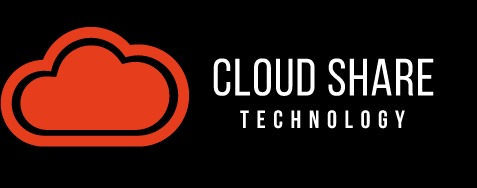Enterprise SSD vs HDD
Selecting the right storage solution is critical for business performance, reliability, and scalability. Enterprises often face the choice between SSDs (Solid State Drives) and HDDs (Hard Disk Drives). Each has its strengths, cost considerations, and ideal use cases.
At Cloud Share Technology, we guide businesses in choosing the best storage options, ensuring high-speed performance, data reliability, and cost-effectiveness.
1. Understanding SSDs and HDDs
HDDs are traditional storage devices that use spinning magnetic disks to read and write data. They are cost-effective and provide high storage capacity.
SSDs, on the other hand, use flash memory to store data electronically. This provides:
- Faster read/write speeds
- Lower latency
- Greater durability due to no moving parts
Both have advantages and trade-offs depending on your business requirements.
2. Performance Comparison
Speed is the most noticeable difference between SSDs and HDDs:
| Feature | SSD | HDD |
|---|---|---|
| Read/Write Speed | 500–7,000 MB/s | 100–250 MB/s |
| Boot Time | Seconds | Minutes |
| Application Performance | Very High | Moderate |
| Latency | Low | Higher |
For businesses running virtual machines, databases, or high-traffic applications, SSDs provide superior speed and responsiveness. HDDs remain suitable for archival storage or bulk data.
3. Reliability and Durability
SSDs are more durable than HDDs because they lack moving parts, reducing the risk of mechanical failure. They are ideal for:
- High-availability servers
- Mobile or remote data centers
- Mission-critical applications
HDDs, while reliable, are more prone to wear and tear, especially in high-vibration or high-temperature environments.
Cloud Share Technology offers enterprise SSDs and hybrid storage solutions to match business workloads and reliability requirements.
4. Cost Considerations
Cost is a key factor in the SSD vs HDD decision:
- HDDs: Lower price per terabyte, ideal for bulk storage or backups
- SSDs: Higher upfront cost, but faster performance and lower operational costs over time
Businesses should balance budget, performance needs, and storage volume when choosing the right storage type.
5. Energy Efficiency and Operational Savings
SSDs consume less power than HDDs, which translates to:
- Lower electricity costs
- Reduced cooling requirements
- Smaller carbon footprint
In large data centers, switching from HDDs to SSDs can significantly reduce operational costs while improving overall performance.
6. Use Cases for SSDs and HDDs
SSD Use Cases:
- Virtualization environments
- Databases and high-performance computing
- Real-time analytics and AI workloads
HDD Use Cases:
- Bulk storage and backups
- Archival data
- Low-traffic applications
Cloud Share Technology helps businesses choose the optimal mix of SSD and HDD to achieve a balance between cost, performance, and reliability.
7. Hybrid Storage Solutions
Many enterprises use hybrid storage systems, combining SSDs and HDDs:
- SSDs for hot data: Frequently accessed files or applications
- HDDs for cold data: Long-term storage and backups
This approach delivers the best of both worlds, optimizing performance and cost.
Cloud Share Technology designs hybrid storage solutions tailored to your specific business environment and workloads.
8. Enterprise-Grade Storage Features
When selecting storage, consider:
- RAID configurations: Protect against data loss
- Encryption: Ensure data security
- Monitoring tools: Track drive health and performance
- Scalability: Expand storage as business needs grow
Enterprise SSDs and HDDs from Cloud Share Technology include these features, guaranteeing reliable and secure storage infrastructure.
9. Why Cloud Share Technology?
Cloud Share Technology offers:
- Expert consultation on storage needs
- Enterprise SSDs, HDDs, and hybrid solutions
- Configuration, deployment, and support services
- Scalable infrastructure for long-term growth
Our solutions ensure businesses maximize performance, reliability, and ROI from their storage investments.
10. Final Thoughts
Choosing between enterprise SSD vs HDD depends on your business goals, budget, and performance needs. SSDs deliver speed, durability, and low latency, while HDDs offer cost-effective high-capacity storage.
By partnering with Cloud Share Technology, businesses gain:
- Optimized storage for every workload
- Scalable, secure, and reliable infrastructure
- Reduced operational costs and energy consumption
Contact Cloud Share Technology today to select the right storage solution for your business.
